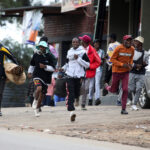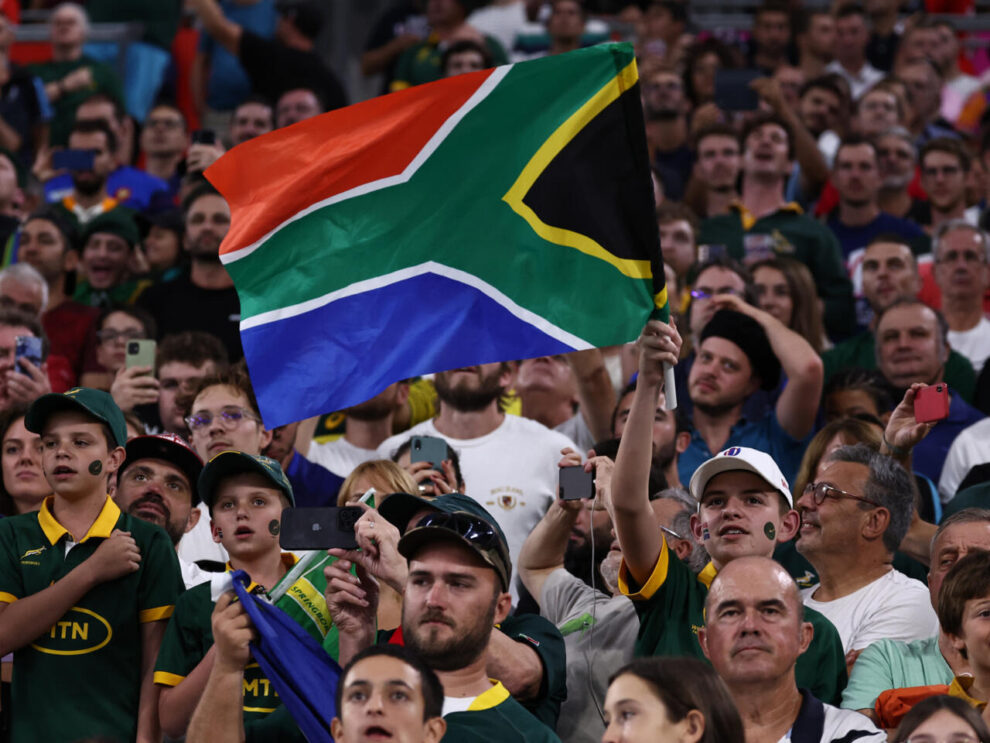South Africa’s flag will fly proudly at Sunday’s highly anticipated Rugby World Cup quarter-final between hosts France and the Springboks as well as at the Cricket World Cup in India, following representations by the SA Institute for Drug-Free Sports (Saids) to the World Anti-Doping Agency (Wada).
South Africa’s national teams faced the embarrassing prospect of not having their national flag flown at events like the two World Cups after Wada said sanctions would be imposed if the country did not update its anti-doping legislation by the 13 October deadline.
“Wada has received formal notification from the South Africa National Anti-Doping Agency (NADO) that it disputes that allegation of non-compliance against it, as well as the proposed consequences,” Wada said in a statement.
“Wada will shortly refer the matter to the Court of Arbitration for Sport (CAS) for its consideration. As such, the allegation of non-compliance is put on hold and the consequences will not apply until such time as CAS makes its ruling.”
The CAS hearing is likely to take place in a few months while the South African government has undertaken to pass the amended anti-doping legislation by May.
This means that the country’s bid to host the 2027 Fifa Women’s World Cup will now, in all likelihood, not be affected by the sanctions.
“Saids notes that Wada has acknowledged receipt of our notice of dispute and that they confirmed that the consequences of non-compliance, as it pertains to the official flying of the SA flag at international sport competitions, will not be enforced until CAS rules on the matter,” Saids Chief Executive Khalid Galant told BBC Sport Africa.
The threat of sanctions
Saids filed a letter of dispute with Wada on Tuesday after the anti-doping body gave the country until 13 October to update its anti-doping legislation.
Failure to amend the legislation would have meant the implementation of sanctions that include not being able to fly the national flag at international sporting events and being prevented from bidding to host or hosting international events.
It would have been impossible for South Africa to meet the Wada deadline because of the comprehensive process involved in amending or introducing new legislation in this country, which normally takes a few months before being signed into law.
In an effort to stave off the sanctions, Saids, who are the signatories to the Wada code, opted to file the letter of dispute with the anti-doping body.
The country’s sports minister Zizi Kodwa told a media briefing in Cape Town on Tuesday that the amended legislation would be passed by May.
“The legislation has already been approved by cabinet and between now and May should be sufficient time for us to come up with credible legislation,” said Kodwa.
“The amendments have been submitted to Wada who have accepted wholly those amendments.”
Kodwa rejected suggestions that the government was playing for time by lodging the appeal.
‘We don’t want to kick the can down the road, we want to find a permanent solution. South Africa’s commitment to anti-doping is unquestioned,” he added.
Galant told BBC Sport Africa the appeal could not be denied.
“The 13-page letter includes a letter of support from government indicating that the legislation in question will be changed by May to meet Wada’s anti-doping requirements,” said Galant.
“We have given them timelines by which the legislation will be changed. We have also given them the option of rescinding their decision of non-compliance in the light of our commitment to changing the legislation.
“The first part of the letter includes an outline of some of the technical issues we are contesting.”
Questions have been asked about why it has taken the government so long to amend anti-doping legislation that was first passed in 1997 and updated in 2006.
Wada updates its anti-doping code every four years and South Africa was put on notice in October 2022 to update its legislation or face sanctions for non-compliance.
Kodwa, who was appointed minister of sports, arts and culture in March, preferred not to point a finger at any of his predecessors for the delay in amending the legislation.
“The only way to see what happened is to conduct an investigation,” he said. “It’s not appropriate to speculate. I cannot sit here and say so-and-so is responsible.”
Source : BBC















